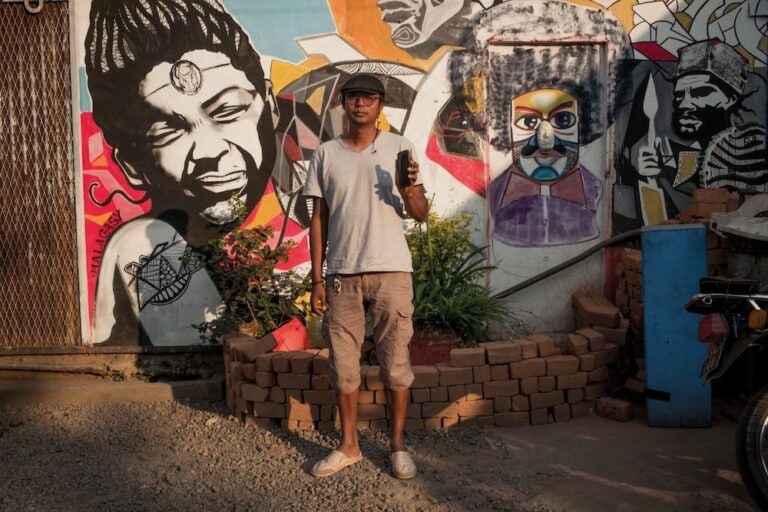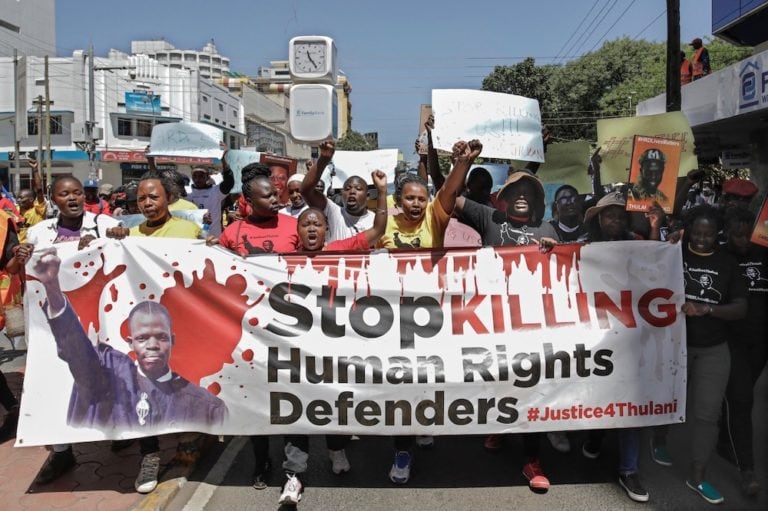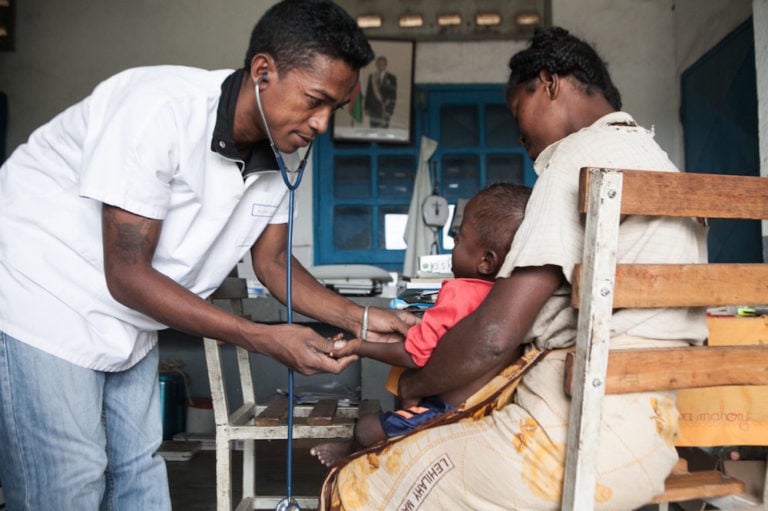(RSF/IFEX) – The following is a 10 April 2002 RSF press release: RSF asks that the two protagonists of the present crisis – Didier Ratsiraka and Marc Ravalomanana – do everything to ensure that journalists can continue to work securely and freely in the country. RSF urges the two political leaders to call upon their […]
(RSF/IFEX) – The following is a 10 April 2002 RSF press release:
RSF asks that the two protagonists of the present crisis – Didier Ratsiraka and Marc Ravalomanana – do everything to ensure that journalists can continue to work securely and freely in the country. RSF urges the two political leaders to call upon their militants and sympathisers to remain calm and not interfere with freedom of expression. “Information pluralism is fundamental during such a turbulent period. Both leaders must do whatever is necessary to ensure that all voices in the country can be expressed without fear,” stated RSF’s Secretary-General Robert Ménard. Since the 22 February 2002 declaration of a state of emergency, about ten radio stations have been ransacked or set on fire, and several journalists have been threatened or assaulted. The recent announcement by a private radio station that it will suspend its news programmes demonstrates that threats and pressures still persist.
RSF also reminds the authorities that state media must serve the public and not an individual or a party. Journalists from the state press must be free to report the news as they see fit and to cover events occurring in both camps.
Lastly, the organisation appeals to journalists present on the island to exercise extreme care in gathering and verifying information. In March, one local daily asserted that “the radios on each side are spreading false information and inciting hatred.” Rumours are spread easily in times of crisis and journalists must abide by their professional ethics and rules of conduct.
Recapitulation of the main facts:
According to information gathered by RSF, on 8 April, the private station Radio-Télévision Analamanga (RTA) announced that it would drop its news flash because of “telephone threats” and “threats against journalists.” According to one press release, the radio station had taken the liberty of “merely providing information and had not slanted it in favour of, or against, any individual, entity or party.”
In addition, on 16 March, soldiers ransacked the offices of Radio Soleil, which is owned by a pro-Ravalomanana member of the Malagasy National Assembly. Two days later, the same servicemen returned to the premises to destroy the rest of the equipment.
On 27 February, Radio Tsiokavao was set on fire by Ravalomanana sympathisers. The station’s offices were totally destroyed in the blaze. Radio Tsiokavao is a Ratsiraka supporter. One of the people responsible for the fire told Agence France-Presse: “We set the fire to avenge the one at MBS radio station.”
During the night of 23 February, about ten masked men attacked the offices of Ravalomanana’s Madagascar Broadcasting Service (MBS) radio station in Fianarantsoa (300 km south of the capital, Antananarivo). The offices were set on fire and three night watchmen were seriously injured in the attack. “We have locked ourselves inside the station offices for three days because we fear for our safety,” the radio station’s editor-in-chief told a Madagascan daily.
On 20 February, striking secondary school students ransacked and threw stones at the offices of the Amoron’i Mania Radio-Television (Art) station in Ambositra les Roses (south of Antsirabe). The students were protesting the station’s coverage of events, which they considered to be overly-partisan. The station is owned by Ratsiraka.
Finally, on 2 February, Lieutenant-Colonel Coutiti, the information minister’s technical advisor, confiscated the private FM 91 radio station’s equipment in Nosy Be (an island in the country’s northern region) and closed the station. FM 91 is owned by a provincial councillor who supports Ravalomanana.


